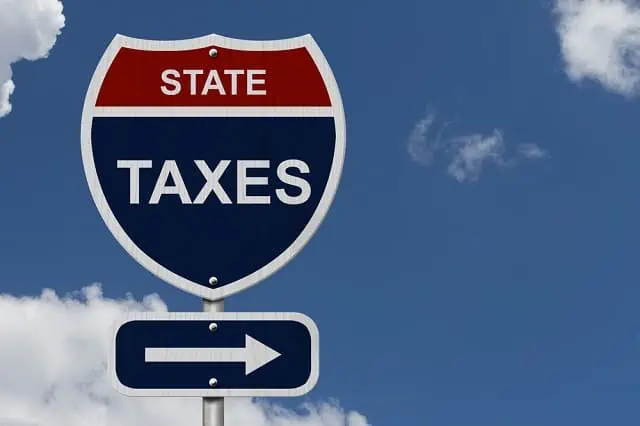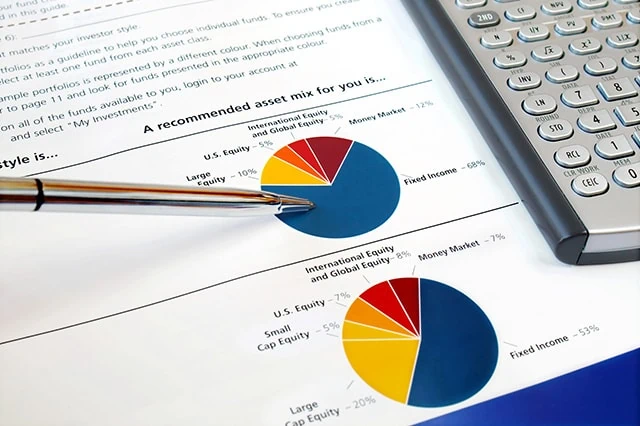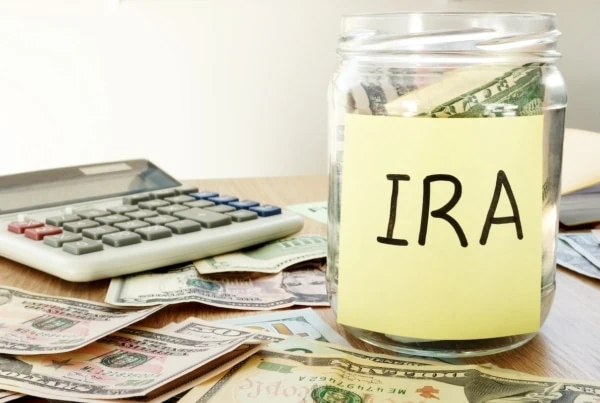Want to catch “FIRE”? Of course you do! The “financial independence, retire early” (FIRE) movement—which involves retiring substantially early, such as in one’s 40s or even 30s—is a dream scenario for just about any American.
But even if you’re not able to quit your job before you’re old enough to run for president, there’s a decent chance you might become one of the millions of Americans who have retired earlier than what Social Security considers “full retirement age.” According to a September 2023 Transamerica Center for Retirement Studies report, the median age for retirees was 62 years old and more than half (58%) retired before age 65.
It’s doable—but you’ll need to be sharp about it. It’s unlikely you’ll enjoy a comfortable early retirement without a solid plan. And given that life’s circumstances aren’t always in your control, you’ll want to draw your financial roadmap conservatively … and without stepping into several common pitfalls that can leave retirees short of the mark.
Read on, and I’ll introduce you to a group of early retirement mistakes you’ll want to avoid. Some of these simply involve crunching your numbers differently than you might have otherwise, while others require some mental discipline.
Avoid These Early Retirement Mistakes

It’s easy to see the appeal of an early retirement. Time is a limited resource, and most of us would want to spend more of our time with loved ones, or traveling, or pursuing hobbies, or even just relaxing.
But sometimes people think they’re ready for retirement only to realize that, to make the finances work, they need to keep working after all. And others realize after they left the workforce that they enjoyed what they did—that working actually provided a sense of purpose, even needed human interaction.
If you want your retirement to stick, then, you need to plan carefully and try to look around a host of financial and even emotional corners.
With that in mind, here are some of the most common early retirement mistakes people make.
1. Underestimating Your Longevity

Let’s say you’re a smoker. Or maybe both of your parents died young. Or perhaps your friend with a passion for tarot predicted the end is near. For whatever reason, you think your lifespan will be short, or average at best.
You certainly should plan with that possibility in mind. But you should also understand the danger of underestimating your longevity.
Data from the Centers for Disease Control and Prevention (CDC) shows that, in 2022, the life expectancy at birth for males was 74.8 years, and 80.2 years for women, for an average national life expectancy of 77.5 years. However, because these numbers include people who die in childhood and early adulthood, it’s not a good measuring stick for how long someone who is already an older adult can expect to live or how many years you may be retired. A better measuring stick? Actuaries from the Social Security Administration created a table showing the expected remaining years of life for people at certain ages. Let’s say you’re a 62-year-old woman. The table estimates you’ll live around 22 more years.
In other words, if you’re a 62-year-old woman, even if you only live until the expected age of passing, you’ll still need enough retirement savings to live off of for the next 22 years.
There’s no crystal ball that can show you how many years you’ll be retired. You could live until you’re 70; you could live until you’re 100. But if you’re planning early because of longevity issues, you’ll want to at least be aware that you might need to stretch your savings for longer than you think.
Related: RMDs Too High? 6 Ways to Reduce Them at Age 73
2. Not Anticipating Healthcare Costs

Americans predominantly get their health insurance through their employer. According to U.S. Census Bureau research, between 2020-22, around 86% of U.S. private-sector workers were employed by companies that offered employer-sponsored health insurance.
Once you’re no longer working, then, you have to figure out not only how you’re going to pay for health care expenses, but also how you’re going to be insured.
Medicare is the front runner … but unless you have a disability or one of a few specific illnesses, Medicare isn’t an option until you reach age 65. That eliminates it as a possibility for a wide swath of early retirees. Instead, you’ll need to explore options such as joining a spouse’s health care plan or buying private health insurance. And no matter how you’re covered, you’ll still have to pay premiums, not to mention other typical costs such as copays, coinsurance, out-of-pocket costs, prescription drugs, over-the-counter purchases, and more.)
So if you’re going to retire early, make sure you have a very good picture of how you’ll obtain insurance and how much you’ll need to pay for health care.
Related: Don’t Overpay for Medicare: How to Avoid the Late Enrollment Penalty
3. Forgetting About Early Withdrawal Penalties

It’s likely that once you stop working, your retirement plan will include deriving at least some of your income from tax-deferred retirement accounts, such as a traditional individual retirement account (IRA) or 401(k).
However, if you take withdrawals at too young of an age, you can trigger penalties.
For instance: If you withdraw from a traditional 401(k) plan before age 59½, in addition to the normal income taxes you owe, you also have to pay a 10% penalty on the amount withdrawn. The same rules apply to traditional IRAs and a few other retirement accounts. There are a few exceptions, but most of them involve special one-time purposes—not funding your whole retirement.
You’ll have somewhat better luck with Roth retirement accounts, such as a Roth IRA or Roth 401(k). These accounts are funded with money that has already been taxed. That means you may withdraw an amount equivalent to how much you’ve contributed without paying a penalty, no matter how young you are. However, withdrawing earnings before you reach age 59½ can trigger both taxes and penalties depending on how long you’ve owned the account and what the withdrawal is being used for.
If you plan to retire younger than age 59½, have a plan for how to have sufficient income without incurring withdrawal penalties. One of your best options is the taxable brokerage account, where you can stash as much money as you’d like and withdraw it at any time without penalty. You could also earn some interest in vehicles like money market accounts and certificates of deposits (CDs).
Related: How Long Will My Savings Last in Retirement? 4 Withdrawal Strategies
4. Not Accounting for Taxes

Retirement doesn’t mean you’re done paying taxes. As we briefly touched upon, when you make withdrawals from tax-deferred retirement accounts, you’ll have to pay taxes on that money any year you make withdrawals.
You might also have to account for Social Security taxes. Yes, most states don’t tax Social Security, with Missouri and Nebraska repealing their levies in 2024. However, roughly a fifth of the country still taxes Social Security benefits. The nine states still taking a piece of the pie are:
- Colorado
- Connecticut
- Minnesota
- Montana
- New Mexico
- Rhode Island
- Utah
- Vermont
- West Virginia (Note: West Virginia’s state taxes on Social Security will phase out in 2024 and 2025, and be eliminated in 2026.)
If you live in a state that taxes your Social Security benefits, and have no intention of moving, you’ll need to figure those taxes into your calculations of how much money you need saved.
Additionally, around 40% of people who receive Social Security have to pay federal income taxes on their benefits. Expect to pay Social Security taxes at the federal level if any of the following situations apply:
- You file your federal tax return as an individual:
- If your combined income is between $25,000 and $34,000, up to 50% of your benefits might be taxable.
- If your combined income is over $34,000, up to 85% of your benefits might be taxable.
- You file a joint return with your spouse:
- If your combined income is between $32,000 and $44,000, up to 50% of your benefits might be taxable.
- If your combined income is over $44,000, up to 85% of your benefits might be taxable.
- You’re married but file separately:
- The SSA says “you probably will pay taxes on your benefits” no matter your income.
Related: Retirement Buckets: A Simple Strategy for Your Retirement Savings
5. Filing for Social Security at the Wrong Time

We don’t all start collecting Social Security retirement benefits at the same age.
You can start receiving Social Security as early as age 62. But that doesn’t mean everyone necessarily should.
If you take Social Security before your full retirement age (FRA), you’ll receive a reduced amount. Specifically, your benefits will be reduced by 5/9ths of 1% for each month before FRA, up to 36 months. If you retire even earlier than 36 months before full retirement age, your benefit will be reduced by an additional 5/12ths of 1% per month, up to the maximum early retirement amount of 60 months. An example from the IRS:
“If the number of reduction months is 60 (the maximum number for retirement at 62 when normal retirement age is 67), then the benefit is reduced by 30 percent. This maximum reduction is calculated as 36 months times 5/9 of 1 percent plus 24 months times 5/12 of 1 percent.”
There’s a kinder edge to this blade. If you wait to retire sometime after full retirement age, you actually receive delayed retirement credits, calculated at different rates depending on when you were born. For those born in 1943 or later, your monthly rate of increase is 2/3rds of 1%, good for an 8% rate of increase across a full 12 months. Just note that the additional benefits stop at age 70. And you still must be insured under Social Security at FRA.
Just don’t treat this as a competition of delayed gratification. Depending on your situation, it might make sense to retire early and receive lesser benefits for longer. Ultimately, do what’s best for you.
Related: Don’t Overpay for Medicare: How to Avoid the Late Enrollment Penalty
6. Not Diversifying Your Investments + Income Sources

Diversification is investment-speak for not putting all of your eggs in one basket. For instance: If you put 100% of your money into a stock, and that stock goes to zero, all of your money will be gone. But if you put 1% of your money into 100 different stocks, if that one stock goes to zero, 99% of your money won’t be impacted.
Diversification is important for any retirement portfolio, but particularly for people who plan to retire early. You don’t want to leave your savings exposed to excessive risk when you’ll be drawing from that nest egg longer than most other people. (Want to know more? Check out our investment guide for [and in] retirement.)
The same thing goes for income streams. For instance: Most people will draw from Social Security and at least one tax-advantaged retirement plan in retirement. But it might help to have multiple retirement plans with differing tax advantages, such as a traditional IRA (taxes aren’t paid until you withdraw) and a Roth IRA (funded with already-taxed money, but you don’t take out taxes when you withdraw). Additional income streams—such as a pension, life insurance policy, settlement, even a part-time job—can help defray the risk of any one source of money drying up.
Related: How to Invest for (And in) Retirement: Strategies + Investment Options
7. Not Accounting for Inflation

People of just about any age might be concerned about how inflation could affect their retirement. Older adults are overwhelmingly worried about it—in a 2023 Nationwide survey of adults between the ages of 60 to 65, 90% of respondents said the biggest threat to their retirement security is inflation.
How much of an impact can inflation have? A quick look at the Bureau of Labor Statistics’ CPI Inflation Calculator shows that a lifestyle costing $100,000 in January 2004 would have cost more than $166,000 just 20 years later.
Unfortunately, the inflation rate varies from year to year, so it’s impossible to know exactly how much prices will actually rise between now and when you retire.
The Federal Reserve has a 2% target rate of inflation that educates their monetary policy. But as you might have noticed, that’s not guaranteed. When considering inflation’s impact on your retirement savings, it’s best to err on the side of caution and assume that, long-term, inflation will be 3% annually. By overestimating inflation, rather than underestimating it, you can give yourself a better chance of retiring with enough money saved.
Related: Budgeting in Retirement: Our Step-by-Step Guide
8. Overspending

I know, I know—how obvious! Still, avoiding overspending is easier said than done.
In a 2023 Transamerica Center survey, 31% of respondents said their retirement expenses were higher than expected. Part of the explanation as to how retirees end up overspending might be explained by how retirees spend their time. In the same survey, when asked how they spend their time, retirees’ top three answers were spending more time with family and friends, pursuing hobbies, and traveling.
Some retirees like to pay for their children and grandchildren when they do activities with them; if they see them often, those expenses can add up. Same goes for travel. Same goes for certain hobbies.
So when planning for an early retirement, remember: Much of the time you were previously working (and making money) is easy to fill on activities (that cost you money).
Related: 10 Discounted Memberships + Subscriptions for Seniors
9. Underestimating the Difficulty of Re-entering the Workforce

“No big deal,” you say. “If I run out of money, I can always just start working again.”
Sure. You might have no problems finding a part-time and/or entry-level job if you’ve been out of the workforce for a few years. But older adults looking for full-time, better-compensated employment might discover the job hunt is more difficult than they expect.
While there are legal protections against ageism, it’s still prevalent in the workforce. Recent AARP research showed that nearly two-thirds (64%) of respondents age 50 and older believe older workers are discriminated against. Employers might very well make assumptions about a retiree’s health, abilities, and the likelihood that they would stay in the position for a long time. It’s also possible that you might fall short on qualifications or technological capabilities if you unplug from your career for a few years.
Unretiring might well be a legitimate backup plan, but it might not be as foolproof as you believe. So at the very least, hope that you’ll be able to unretire if it comes to it, but plan for the possibility that you won’t.
Related: What Are the Average Retirement Savings By Age?
10. Ignoring the Emotional Aspect of Retirement

Early retirement isn’t just a monetary decision—it’s an emotional and mental one, too.
According to the 2022 T. Rowe Price Retirement Saving & Spending Survey, nearly half of people working in retirement chose to do so for the social and emotional benefits. Retirees are often motivated to work because they seek mental stimulation.
Joblist’s U.S. Job Market Report Q2 2022 showed similar results. Around 60% of retirees going back to work said they were doing so because they were “looking for something to do.”
Before ending your career prematurely, you might want to consider where the vast majority of your socialization comes from. Do you have family and friends nearby, or will you be moving to be near them? Or do you mostly get your socialization at work, and retiring would deprive you of most of your opportunities to be around other people? Do you have hobbies to pursue in retirement? Does work give you a sense of purpose that may be difficult to replace?
It’s hard to account for these questions on a budget. But they’re still vital things you need to ask yourself before rushing into retirement.
Related:







